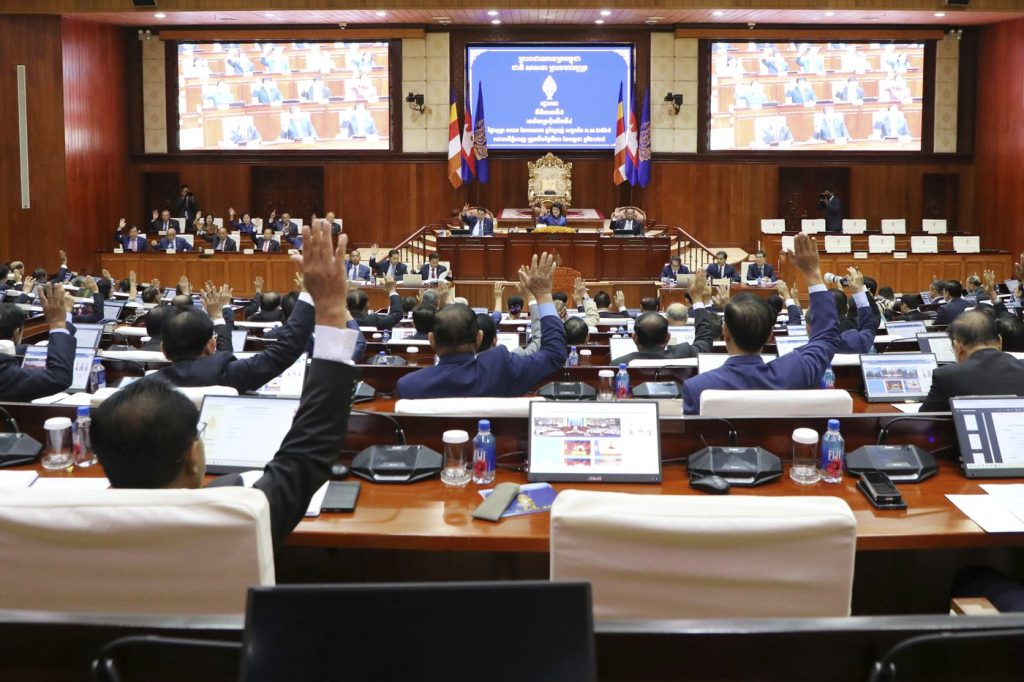PHNOM PENH, Cambodia (AP) - Cambodian lawmakers unanimously passed a constitutional amendment that allows the government to draft legislation aimed at revoking the citizenship of individuals found guilty of conspiring with foreign nations to harm Cambodia's national interests. This decision was reached during a session of the National Assembly, where all 125 members voted in favor of the proposal on Friday, July 11, 2025.
The amendment modifies Article 33 of Cambodia's constitution and enables the government to create a bill that would allow the stripping of citizenship for the first time in the nation’s history. Critics of Prime Minister Hun Manet's government view this move as an effort to suppress dissent and target political opponents, particularly members of the opposition and government critics, many of whom are known to hold dual citizenship.
Justice Minister Koeut Rith remarked that officials would urgently draft legislation to revoke citizenship for individuals found guilty of treason or collaboration with foreign entities. His statement hinted at instances where some Cambodians allegedly conspired with foreign nations against their own country, referencing a recent conflict with Thailand that resulted in the death of a Cambodian soldier.
Relations between Cambodia and Thailand currently remain fraught, worsened by the political landscape in Thailand where Prime Minister Paetongtarn Shinawatra was suspended pending an ethics investigation related to a leaked phone call about the border dispute. The political turmoil in Thailand adds another layer of complexity to regional tensions, especially as Cambodia has submitted a request to the International Court of Justice regarding ancient temple sites at the disputed border.
During this period, Hun Sen, alongside his son Hun Manet, has called for legal measures to address ongoing criticism from opposition figures. They argued that the legal change is necessary and cited similar laws in other countries such as the United States. Hun Manet assured the public that true patriots would not need to fear this amendment unless they were conspiring against Cambodia.
Human rights organizations, including Amnesty International, expressed severe concerns over the potential misuse of this amendment, warning that it could render dissenters stateless. The organization's regional research director emphasized the importance of judicial independence in protecting people's rights and highlighted the existing culture of impunity that allows authoritarian practices to persist in Cambodia.
Former opposition leader Sam Rainsy, who has faced years of politically motivated charges leading him to live in exile since 2016, was specifically referenced by Hun Sen for making statements perceived as detrimental to national interests. Rainsy criticized Hun Sen's rhetoric regarding the Thailand border dispute, arguing that it reflects more of a personal and political panic than patriotism, attributing the dispute to a fear of losing control over illicit funding sources intertwined with international criminal networks.
Overall, the constitutional amendment and the surrounding political dynamics underscore the fragile nature of democracy and human rights in Cambodia, as the government seeks to tighten its grip on power in the face of persistent opposition and criticism.











